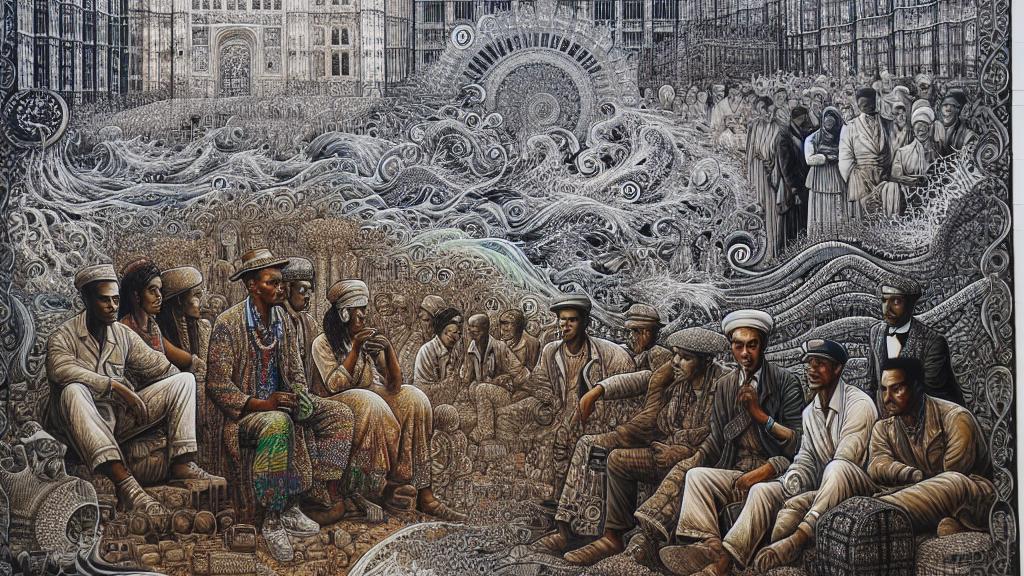Understanding Immigration and Integration in Britain
Overview
- Elon Musk's recent comments reignite essential conversations on UK immigration.
- Britain’s rich history as a nation of immigrants is deeply rooted.
- Personal experiences of integration vary widely, shaping societal dynamics.

Immigration Insights
Elon Musk stirred the pot with his remarks on Muslims and immigration, prompting a crucial examination of the role immigrants play in Britain. This isn’t just another topic; it’s a storyline woven through centuries of history. Picture this: after World War II, Caribbean immigrants journeyed to the UK, bringing not just their dreams but the vibrant sounds of calypso and reggae, forever altering the cultural landscape. When we talk about immigration, it’s essential to recognize that each group, whether it’s the Italians, the Indians, or the Syrian refugees today, adds a unique hue to Britain’s evolving tapestry.
Experiences of New Arrivals
Imagine a family relocating from Somalia to London. They enroll their children in a Church of England school, hoping it would provide a welcoming environment. But integration is often more complex than simply joining a classroom. It can mean attending a Friday pub quiz or sharing laughter at a local football match. Every interaction, small or large, can create ripples of understanding. For instance, a South Asian family might share biryani at a community potluck, fostering connections through food—an age-old bridge that transcends cultural differences. However, the hurdles remain; some face prejudice, struggling to break into social circles that seem impenetrable. Yet, with each conversation, barriers can crumble, making way for shared experiences.
A Nuanced Perspective
We often frame integration in terms of ethnicity, yet isn’t it time we consider social class as well? British society isn’t monolithic; there are varied experiences within its confines. Think about the contrast between the homeless population and affluent aristocrats. Both live in the same country but lead vastly different lives. Likewise, an immigrant accountant may find more opportunities to integrate into a professional setting than someone from a well-off family who feels disconnected from mainstream life. These dynamics compel us to redefine how we measure belonging, reminding us that community and acceptance can take on many forms.
Cultural Contributions
The impact of immigrants on British culture is both profound and colorful. Take the Notting Hill Carnival, a dazzling display of Caribbean heritage, which has become one of the UK's largest street festivals. The rhythm of steel drums and the sway of costumes tell stories of history, resilience, and joy. Yet, we must recognize that this celebration didn’t emerge overnight. Generations faced skepticism and resistance before being welcomed into the fold. This historical context of struggle highlights a significant point: while current society may showcase diversity, it is essential to remember the hard-won battles for acceptance that brought us here.
The Current Landscape
As we look ahead, emerging policies such as electronic travel authorizations present fresh challenges and opportunities for immigrants. Some are thrilled at the prospect of simplified travel, while others worry about their future amid tightening regulations. It’s crucial to engage thoughtfully with these foundational changes. Each immigrant’s journey is unique, and understanding their plight fosters compassion and connection. We must champion a society that values its immigrant populace, viewing them not as outsiders but as integral threads within the fabric of British identity. Ultimately, embracing our diverse roots can pave the way for a vibrant and harmonious future.

Loading...